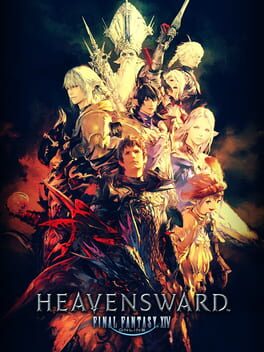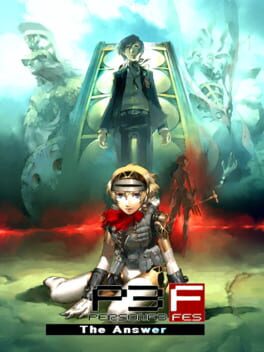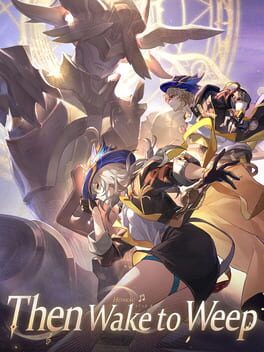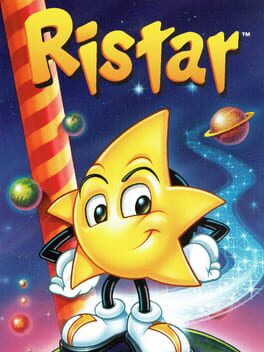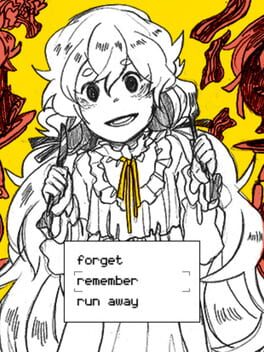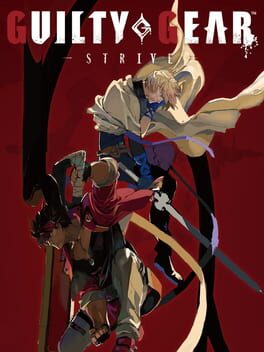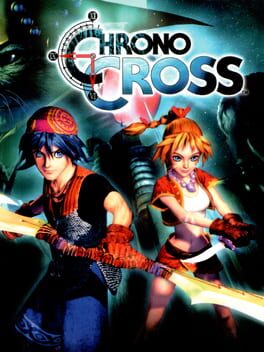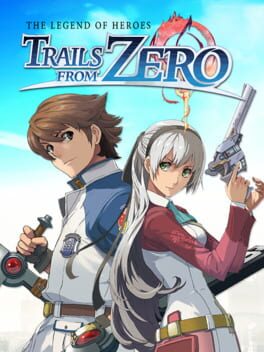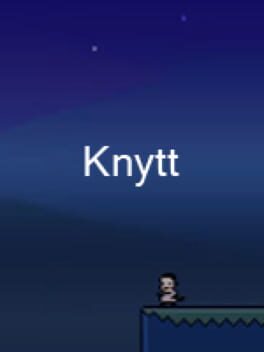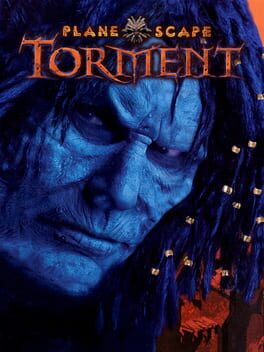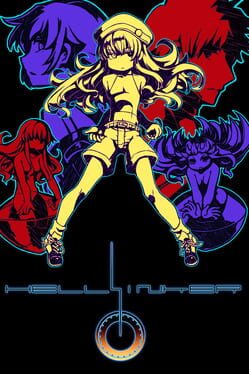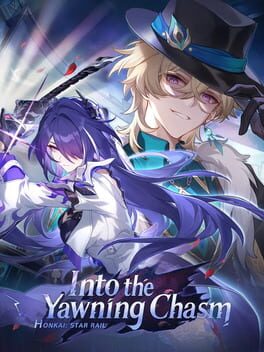Valri
BACKER
201 Reviews liked by Valri
Games that tell stories only capable of being relayed through the medium of gaming will always hold a special place in my heart. Since my first encounters with video games as a whole, I've never quite found any method of storytelling to even compare to it. Sure, the occasional film or manga or what have you might catch my attention, but those I hold at the peak of any other medium don't really come close to the experiences I've had with gaming.
Return of the Obra Dinn has once again solidified this idea for me, and it does so in such a way where I feel that everything within the experience is deserving of commendation. The actors, writing, art, music, and everything all together unite for an extremely fleshed out and cohesive experience that held my attention the whole way through. I believe this holds true for much of the game's playerbase due to the incredible completion rates seen on each of the achievements. Return of the Obra Dinn manages to create a very unique gameplay loop I haven't quite seen elsewhere, it's an incredibly fresh and engaging experience that I feel anyone with a brain could hold appreciation for. It might not be a grand story in comparison to other titles of today, but it sure as hell is a good one, a GREAT one.
A game that will constantly have you thinking, theorizing, trying new things, finding new angles, and most importantly, keeping you engaged following through its bizarre and beautiful storytelling. This is a game that I believe couldn't and shouldn't be passed up, if you're interested, play it. You won't regret it.
Return of the Obra Dinn has once again solidified this idea for me, and it does so in such a way where I feel that everything within the experience is deserving of commendation. The actors, writing, art, music, and everything all together unite for an extremely fleshed out and cohesive experience that held my attention the whole way through. I believe this holds true for much of the game's playerbase due to the incredible completion rates seen on each of the achievements. Return of the Obra Dinn manages to create a very unique gameplay loop I haven't quite seen elsewhere, it's an incredibly fresh and engaging experience that I feel anyone with a brain could hold appreciation for. It might not be a grand story in comparison to other titles of today, but it sure as hell is a good one, a GREAT one.
A game that will constantly have you thinking, theorizing, trying new things, finding new angles, and most importantly, keeping you engaged following through its bizarre and beautiful storytelling. This is a game that I believe couldn't and shouldn't be passed up, if you're interested, play it. You won't regret it.
'Persona 3 FES Fan Excited To Finish Persona 3 FES For The First Time'
(Contains spoilers for Persona 3 FES: The Journey)
The second the trailer for that hilariously overpriced DLC expansion pass for Persona 3 Reload dropped, I realized I had to be more than a stereotype. It was time for me to beat the Persona fan allegations of “knowing a story only because I watched the cutscenes on YouTube.” It was time for me to beat The Answer before it becomes cool…
Okay. That's all like. 30% of my actual motivation for doing this. I replayed the entirety of The Journey beforehand as a way to cement my feelings towards the original in the wake of Reload. And due to my various gripes with Reload’s presentation and also generally just preferring the original on most fronts, I didn’t think it’d be right if my first, proper experience with The Answer was through its remake. Though I’ve replayed Persona 3 FES many times before, this post-story gamemode was something I was never in the mood to finish after reaching the phenomenal conclusion of the original story. I never saw a continuation as necessary. And I think P3’s dungeon crawling loses much of its thematic meaning and intrigue when you divorce it from its other social sim half. Even now, after properly finishing The Answer, I’d say my initial concerns weren’t unfounded. But there definitely is still much worth in the experience.
Right off the bat, I adore the set up. Characterization is one of Persona 3’s strong suits, and it’s on full display here. You’re immediately stricken by its understated, yet somber tone. The rest of the story is quite solid in showcasing the various ways each member of SEES have either developed or regressed since the original story’s end, but the banter of the opening few scenes alone communicates these ideas in such a perfect fashion. SEES’ fallibility has always been one of my favorite aspects about them as a cast. They’re beloved for that sense of realness and humanity that permeates throughout each member, and their flaws being so highlighted is a key part as to why. They might dramatically “complete” their character arcs through Persona evolutions or strengthen their own convictions to the degree where they can clash with the embodiment of death itself. But none of that means the writers won’t continue to portray them as the messy little fucked up group of teens that they are. And this idea is what The Answer most strongly reinforces. As showcasing the self-destructive actions they make in reaction to facing such a devastating loss is the entire crux of the story.
The Answer shines the most with its character writing in three clear cases: Aigis, Metis, and Yukari. The former is a perfect lead for the protagonist to pass his torch to. Aigis’s arc up until this point already shared much in common with her emo husband, as they both primarily developed and gained a sense of identity through their collective experiences alongside their friends. So fully cementing her as a Wild Card just feels extremely right, especially after the bond the two form in the main story and this version's newly added Aeon social link (best social link in the series btw). Newcomer Metis exists primarily to strengthen Aigis’ character arc and she does a phenomenal job at that. It’s clear from the start that she’s meant to reflect Aigis in a symbolic sense and the parallels between them only grow stronger in terms of effectiveness as the story builds up their relationship. But despite playing a more function oriented role in the narrative, she is still incredibly entertaining. I clapped at every scene where Akihiko threatened her life and she responds by casually telling him to shut the fuck up. Then there’s Yukari. Do I even need to justify her role? I feel like that’s just a waste of breath. Shocking: a 17 year old girl gets a little bit mean when the boy she loves dies in the arms of another girl who’s neglecting to face the full reality of his death. Anyways, she’s great here. Though I definitely feel like her story could’ve been told with a better degree of nuance. Yukari’s always been one of the more empathetic cast members and seeing her act so abrasive towards everyone in general is a bit off putting at times. But I still respect the idea behind it all and it results in these beautiful emotionally charged scenes that’re on par with some of the best from the base game.
Though where this story really begins to lose me is its poor pacing and sloppy structure. It’s a case of stretching such a short narrative extremely thin. There’s just not enough here to justify going through seven different sequences of dungeon crawling. And while I’d compliment the characterization, I honestly feel the arcs of Aigis, Metis, and Yukari are the only things here that felt like they were written with complete confidence and intention. There’s this specific and formulaic way they go about exploring SEES as characters for the entire middle point of the story that feels so… random? They’re nice scenes to see, especially since I adore these characters, but I honestly can’t tell you how the looks into the past are supposed to add to the story’s statement in any substantial way. Also not a big fan of Metis’s info dumping or SEES’ guesswork, as a lot of it comes off as these awkward justifications for the story’s progression. It results in these genuinely intriguing mysteries and heartfelt conflicts that feel clunky in their resolutions.
I had negative expectations for the gameplay here. And that left me kinda shocked when I walked away enjoying most of the experience. The Answer is nothing but dungeon crawling, set on hardmode, with more complex boss design, and restricted access to certain quality of life features. On paper that all sounds fucking terrible. And some of it is. I, for the life of me, still question why they decided to remove warp stations before boss floors in favor of one way teleporters and a save point. To the point where I grabbed a mod that lets you fully heal at said save points (Sorry for being a filthy CHEATER, but I did not have the strength to deal with such a waste of time. I have a life 💔). But after getting over a lot of the annoyances that came from the simple concept of these changes, I came to realize that The Answer truly appeals to little freaks like me. Someone who genuinely likes Persona 3 FES’s flawed, yet bold battle system.
Battles can be infuriating on occasion due to the amped up resistances of most enemies and how that tends to bring out the worst of the AI party system, but I generally found them fun to fight. Though the one thing I’d like to acknowledge in particular are the nerfs to Fusion. That’s right. My The Answer hot take isn’t that weak shit like “it’s actually good” or “Yukari is reasonable.” It’s that the lack of arcana burst and compendium are valuable changes that add a different layer to the way you’re expected to engage with the dungeon crawling. Foresight is paramount and every fusion you make feels important. Between making sure I had each buff skill accounted for at any given moment or making the most of EXP share passives by transferring them to Personae with desirable skills, it feels like The Answer was able to bring out a niche appeal of the Fusion system the other mainline titles rarely nail. Due to my foresight and knowledge of the base game’s skill progression, I almost never had to stop and grind like I was expecting to. I was entirely prepared for 99% of the encounters I faced (fuck the penultimate Abyss of Time fight oh my god) and that felt extremely rewarding. I get that it’s harsh in design and not everyone’s experience is going to go as smoothly. But I found it was an interesting twist on a system that normally becomes less and less substantive to engage with as the game goes on.
It was really satisfying to see the credits draw to a close. I’ve been madly in love with Persona 3 FES for almost four years now and, though it’s funny to say, today is the day I finally finished it properly. While a lot of my initial assessments of The Answer came to be true, I’m glad I was still able to get something out of it in this playthrough. I’m still shocked by the amount of enjoyment I was able to find in its challenge run-esque design mentality. And best of all, it’s given me an excuse to brainrot over Persona 3 for a little while longer, thanks to the ways it expands on its cast. As flawed and half baked as it feels in so many regards, I’d say I overall enjoyed my time with it. Can’t wait to see how I feel about its remake, especially given the announcement that they’ll be adding in more story scenes. Now, someone come restrain me before I buy the $35 expansion pass for Persona 3 Reload. Hurry… There’s not much time. The microchip is beeping oh god o h no I. LOVE ATLUS GAAAAAAH!!!
(Contains spoilers for Persona 3 FES: The Journey)
The second the trailer for that hilariously overpriced DLC expansion pass for Persona 3 Reload dropped, I realized I had to be more than a stereotype. It was time for me to beat the Persona fan allegations of “knowing a story only because I watched the cutscenes on YouTube.” It was time for me to beat The Answer before it becomes cool…
Okay. That's all like. 30% of my actual motivation for doing this. I replayed the entirety of The Journey beforehand as a way to cement my feelings towards the original in the wake of Reload. And due to my various gripes with Reload’s presentation and also generally just preferring the original on most fronts, I didn’t think it’d be right if my first, proper experience with The Answer was through its remake. Though I’ve replayed Persona 3 FES many times before, this post-story gamemode was something I was never in the mood to finish after reaching the phenomenal conclusion of the original story. I never saw a continuation as necessary. And I think P3’s dungeon crawling loses much of its thematic meaning and intrigue when you divorce it from its other social sim half. Even now, after properly finishing The Answer, I’d say my initial concerns weren’t unfounded. But there definitely is still much worth in the experience.
Right off the bat, I adore the set up. Characterization is one of Persona 3’s strong suits, and it’s on full display here. You’re immediately stricken by its understated, yet somber tone. The rest of the story is quite solid in showcasing the various ways each member of SEES have either developed or regressed since the original story’s end, but the banter of the opening few scenes alone communicates these ideas in such a perfect fashion. SEES’ fallibility has always been one of my favorite aspects about them as a cast. They’re beloved for that sense of realness and humanity that permeates throughout each member, and their flaws being so highlighted is a key part as to why. They might dramatically “complete” their character arcs through Persona evolutions or strengthen their own convictions to the degree where they can clash with the embodiment of death itself. But none of that means the writers won’t continue to portray them as the messy little fucked up group of teens that they are. And this idea is what The Answer most strongly reinforces. As showcasing the self-destructive actions they make in reaction to facing such a devastating loss is the entire crux of the story.
The Answer shines the most with its character writing in three clear cases: Aigis, Metis, and Yukari. The former is a perfect lead for the protagonist to pass his torch to. Aigis’s arc up until this point already shared much in common with her emo husband, as they both primarily developed and gained a sense of identity through their collective experiences alongside their friends. So fully cementing her as a Wild Card just feels extremely right, especially after the bond the two form in the main story and this version's newly added Aeon social link (best social link in the series btw). Newcomer Metis exists primarily to strengthen Aigis’ character arc and she does a phenomenal job at that. It’s clear from the start that she’s meant to reflect Aigis in a symbolic sense and the parallels between them only grow stronger in terms of effectiveness as the story builds up their relationship. But despite playing a more function oriented role in the narrative, she is still incredibly entertaining. I clapped at every scene where Akihiko threatened her life and she responds by casually telling him to shut the fuck up. Then there’s Yukari. Do I even need to justify her role? I feel like that’s just a waste of breath. Shocking: a 17 year old girl gets a little bit mean when the boy she loves dies in the arms of another girl who’s neglecting to face the full reality of his death. Anyways, she’s great here. Though I definitely feel like her story could’ve been told with a better degree of nuance. Yukari’s always been one of the more empathetic cast members and seeing her act so abrasive towards everyone in general is a bit off putting at times. But I still respect the idea behind it all and it results in these beautiful emotionally charged scenes that’re on par with some of the best from the base game.
Though where this story really begins to lose me is its poor pacing and sloppy structure. It’s a case of stretching such a short narrative extremely thin. There’s just not enough here to justify going through seven different sequences of dungeon crawling. And while I’d compliment the characterization, I honestly feel the arcs of Aigis, Metis, and Yukari are the only things here that felt like they were written with complete confidence and intention. There’s this specific and formulaic way they go about exploring SEES as characters for the entire middle point of the story that feels so… random? They’re nice scenes to see, especially since I adore these characters, but I honestly can’t tell you how the looks into the past are supposed to add to the story’s statement in any substantial way. Also not a big fan of Metis’s info dumping or SEES’ guesswork, as a lot of it comes off as these awkward justifications for the story’s progression. It results in these genuinely intriguing mysteries and heartfelt conflicts that feel clunky in their resolutions.
I had negative expectations for the gameplay here. And that left me kinda shocked when I walked away enjoying most of the experience. The Answer is nothing but dungeon crawling, set on hardmode, with more complex boss design, and restricted access to certain quality of life features. On paper that all sounds fucking terrible. And some of it is. I, for the life of me, still question why they decided to remove warp stations before boss floors in favor of one way teleporters and a save point. To the point where I grabbed a mod that lets you fully heal at said save points (Sorry for being a filthy CHEATER, but I did not have the strength to deal with such a waste of time. I have a life 💔). But after getting over a lot of the annoyances that came from the simple concept of these changes, I came to realize that The Answer truly appeals to little freaks like me. Someone who genuinely likes Persona 3 FES’s flawed, yet bold battle system.
Battles can be infuriating on occasion due to the amped up resistances of most enemies and how that tends to bring out the worst of the AI party system, but I generally found them fun to fight. Though the one thing I’d like to acknowledge in particular are the nerfs to Fusion. That’s right. My The Answer hot take isn’t that weak shit like “it’s actually good” or “Yukari is reasonable.” It’s that the lack of arcana burst and compendium are valuable changes that add a different layer to the way you’re expected to engage with the dungeon crawling. Foresight is paramount and every fusion you make feels important. Between making sure I had each buff skill accounted for at any given moment or making the most of EXP share passives by transferring them to Personae with desirable skills, it feels like The Answer was able to bring out a niche appeal of the Fusion system the other mainline titles rarely nail. Due to my foresight and knowledge of the base game’s skill progression, I almost never had to stop and grind like I was expecting to. I was entirely prepared for 99% of the encounters I faced (fuck the penultimate Abyss of Time fight oh my god) and that felt extremely rewarding. I get that it’s harsh in design and not everyone’s experience is going to go as smoothly. But I found it was an interesting twist on a system that normally becomes less and less substantive to engage with as the game goes on.
It was really satisfying to see the credits draw to a close. I’ve been madly in love with Persona 3 FES for almost four years now and, though it’s funny to say, today is the day I finally finished it properly. While a lot of my initial assessments of The Answer came to be true, I’m glad I was still able to get something out of it in this playthrough. I’m still shocked by the amount of enjoyment I was able to find in its challenge run-esque design mentality. And best of all, it’s given me an excuse to brainrot over Persona 3 for a little while longer, thanks to the ways it expands on its cast. As flawed and half baked as it feels in so many regards, I’d say I overall enjoyed my time with it. Can’t wait to see how I feel about its remake, especially given the announcement that they’ll be adding in more story scenes. Now, someone come restrain me before I buy the $35 expansion pass for Persona 3 Reload. Hurry… There’s not much time. The microchip is beeping oh god o h no I. LOVE ATLUS GAAAAAAH!!!
Ristar
1995
The term demake gets thrown around kind of a lot nowadays to just mean "remake I don't like" but I always thought of it to mean remaking a game on weaker hardware. In this case, we have Ristar for the Sega Game Gear, which is far weaker than the Sega Genesis.
TBH? It's by far the most impressive deconversion of a game ever made, to the point I much prefer it to the Genesis version. All the levels I disliked such as the water levels are replaced with new more straightforward levels like a cool rainbow level (be sure to play the Japanese version of GG Ristar!) or bomb disposal level. I just enjoy not having to play with the swimming physics again.
The music and graphics are a bit of a downgrade of course, but GG Ristar punches far harder than its weight class would suggest. I could listen to its version of the OST for ages https://www.youtube.com/watch?v=iZIuBpTd9P8
Also, even the English version retains the story from the Japanese original which was changed in the English Genesis release. Very neat! But I think the coolest technical achievement is how they managed to replicate the ending effects on Game Gear! https://youtu.be/SxdHf1xz0w4?t=2254
It's the same Ristar you know and love, only with all the filler bits removed and replaced with mostly more interesting things imo. The new collectibles are really fun to casually walk through and I appreciate how many extra things there are to grab such as enemy shields and spears. Easy rec for fans of the original.
TBH? It's by far the most impressive deconversion of a game ever made, to the point I much prefer it to the Genesis version. All the levels I disliked such as the water levels are replaced with new more straightforward levels like a cool rainbow level (be sure to play the Japanese version of GG Ristar!) or bomb disposal level. I just enjoy not having to play with the swimming physics again.
The music and graphics are a bit of a downgrade of course, but GG Ristar punches far harder than its weight class would suggest. I could listen to its version of the OST for ages https://www.youtube.com/watch?v=iZIuBpTd9P8
Also, even the English version retains the story from the Japanese original which was changed in the English Genesis release. Very neat! But I think the coolest technical achievement is how they managed to replicate the ending effects on Game Gear! https://youtu.be/SxdHf1xz0w4?t=2254
It's the same Ristar you know and love, only with all the filler bits removed and replaced with mostly more interesting things imo. The new collectibles are really fun to casually walk through and I appreciate how many extra things there are to grab such as enemy shields and spears. Easy rec for fans of the original.
Guilty Gear: Strive
2021
If there’s anything in this world worth keeping alive, it’s love.
In the void that is Revachol, we see the light of love and hope slowly fade away. It is up to us to cultivate and nurture that light so it does not die. Love is not dead! As you read this, you are alive and breathing, and it's up to you to seize what remains and fight for it. We can no longer wait for some great revolution that will fix all of our problems. If you truly desire a revolution, you must create the conditions necessary to birth it!
Disco Elysium isn’t just a game about what political faction you align with or finding out who lynched the man behind Whirling-in-Rags; it’s a story about love and why we must hold onto it, even in the darkest of times. I understand that nowadays, with the current state of affairs, it's hard to believe in love and hope. It's difficult to place our hope in a future that seems to have been stolen away from us, yet that's precisely when we need it the most.
I choose to believe in love. I choose to hold on to the hope that a better future is possible, no matter what, because I believe it is. The people we know, the community we live in, and the world we inhabit are worth fighting for. Disco Elysium taught me that fixing the world and making it a better place isn’t just about picking up a gun and waging some violent revolution; it’s about cultivating community and caring for those in it. That’s where the true beauty of Disco Elysium lies.
I believe the way this game conveys that message is quite powerful. Disco doesn't make some grand showy gesture beating you over the head with its message; instead, it laboriously takes the time to show you that the world you live in is beautiful and worth fighting for. It spends the time showing you the inner lives of those around you and has you helping them, one person at a time.
There is one specific character that I feel best embodies this: Cuno. Cuno, at first, is seen to be an irrational, difficult, vulgar, and poorly-behaved child, which leads you to inevitably hate him. As you learn more about Cuno and his home life, however, you realise there’s something greater at play. He doesn’t act out for the hell of it; he is the way he is because his father is a drunk who’s fallen down on his luck due to becoming a victim of the system giving up on him and his son. He’s left with no choice. The system has abandoned Uuno and his son, leaving them both to fend for themselves and pick up the pieces. Which sadly isn’t uncommon in Revachol and the real world as well. It’s perhaps one of the most striking and poignant stories in the game. I eventually went from despising Cuno to feeling empathy for him, as I did for many others in Revachol when I learned their stories.
I believe this approach to storytelling and character writing is incredibly effective, and the best part about Disco Elysium is that these kinds of stories are all over the game. This goes to show how much love and care was put into humanising the inhabitants of Revachol, which helps make the world feel alive. Because of how well the game fleshed out its world and characters Disco Elysium was successful at conveying the message that this world is worth fighting for. Not only was I captivated by this world, but as the game drew to a close, I found myself deeply invested in the wellbeing of these characters and the city.
As I learned about these stories, Revachol’s history, and the many political factions vying for power, I realised that this game was never about solving a murder or finding which faction is "correct." It was about learning to love those around us and working together to create a better world, one step at a time. Creating a better world was never an unattainable goal conjured up in the minds of idealistic and "ignorant" kids. It is a possible reality, but it demands the working toiling masses of the world unite and work hand in hand in creating this future. It is on us to seize the future and lift eachother up when we need it most.
Never give up on fighting for this future. It is only dead when you allow yourself to be convinced that it is.
In the void that is Revachol, we see the light of love and hope slowly fade away. It is up to us to cultivate and nurture that light so it does not die. Love is not dead! As you read this, you are alive and breathing, and it's up to you to seize what remains and fight for it. We can no longer wait for some great revolution that will fix all of our problems. If you truly desire a revolution, you must create the conditions necessary to birth it!
Disco Elysium isn’t just a game about what political faction you align with or finding out who lynched the man behind Whirling-in-Rags; it’s a story about love and why we must hold onto it, even in the darkest of times. I understand that nowadays, with the current state of affairs, it's hard to believe in love and hope. It's difficult to place our hope in a future that seems to have been stolen away from us, yet that's precisely when we need it the most.
I choose to believe in love. I choose to hold on to the hope that a better future is possible, no matter what, because I believe it is. The people we know, the community we live in, and the world we inhabit are worth fighting for. Disco Elysium taught me that fixing the world and making it a better place isn’t just about picking up a gun and waging some violent revolution; it’s about cultivating community and caring for those in it. That’s where the true beauty of Disco Elysium lies.
I believe the way this game conveys that message is quite powerful. Disco doesn't make some grand showy gesture beating you over the head with its message; instead, it laboriously takes the time to show you that the world you live in is beautiful and worth fighting for. It spends the time showing you the inner lives of those around you and has you helping them, one person at a time.
There is one specific character that I feel best embodies this: Cuno. Cuno, at first, is seen to be an irrational, difficult, vulgar, and poorly-behaved child, which leads you to inevitably hate him. As you learn more about Cuno and his home life, however, you realise there’s something greater at play. He doesn’t act out for the hell of it; he is the way he is because his father is a drunk who’s fallen down on his luck due to becoming a victim of the system giving up on him and his son. He’s left with no choice. The system has abandoned Uuno and his son, leaving them both to fend for themselves and pick up the pieces. Which sadly isn’t uncommon in Revachol and the real world as well. It’s perhaps one of the most striking and poignant stories in the game. I eventually went from despising Cuno to feeling empathy for him, as I did for many others in Revachol when I learned their stories.
I believe this approach to storytelling and character writing is incredibly effective, and the best part about Disco Elysium is that these kinds of stories are all over the game. This goes to show how much love and care was put into humanising the inhabitants of Revachol, which helps make the world feel alive. Because of how well the game fleshed out its world and characters Disco Elysium was successful at conveying the message that this world is worth fighting for. Not only was I captivated by this world, but as the game drew to a close, I found myself deeply invested in the wellbeing of these characters and the city.
As I learned about these stories, Revachol’s history, and the many political factions vying for power, I realised that this game was never about solving a murder or finding which faction is "correct." It was about learning to love those around us and working together to create a better world, one step at a time. Creating a better world was never an unattainable goal conjured up in the minds of idealistic and "ignorant" kids. It is a possible reality, but it demands the working toiling masses of the world unite and work hand in hand in creating this future. It is on us to seize the future and lift eachother up when we need it most.
Never give up on fighting for this future. It is only dead when you allow yourself to be convinced that it is.
Final Fantasy VII
1997
When it comes to Final Fantasy VII, I think there tends to be a general fixation on Midgar as a centralized point of identity for the game. And while I do think it's one of the best opening segments in maybe any videogame, what makes it work so well in the grand scheme of things is just how introspective the rest of the game feels when juxtaposed to its explosive sense of grandiosity.
Final Fantasy VII's globe trotting adventure isn't primarily defined by it's sense for theatrics, but by it's mellow tone and somber sensibilities. The towns you come across are oftentimes humble and restrained, carefully crafted with precision point environmental design and delicate cinematography. There's a tender sense of balance to found throughout the whole affair, as it seeks to comfort you just as often as it alienates you. That push-and-pull dynamic it shares with the player is such a key focal point as to what make the worlds of VII and VIII feel so utterly compelling to me, and I can't help but feel that the unquestioned contrast between the science and fantasy elements plays a major factor in how sheerly effective that relationship it is.
Aerith's fate is something I'll never forget, not just because of the effective dramatization found within that one moment, but because of how silent and truly felt her absence is across the rest of the game. A lot of people give this game grief for putting the snowboarding segment not even like twenty minutes later, but the fact that the game just moves on afterwards without dwelling on itself too hard is exactly what I think makes it brilliant. Final Fantasy VII allows its punctual moments to breathe and sink skin deep, and it knows that no amount of self indulgent dialogue commemorating Aerith would ever hit as hard as opening the party screen just to see a missing slot there.
Cloud might not be the person he says he is, but what he becomes through learning to open his heart to other people and show compassion makes him more of a hero than any mere SOLDIER could ever hope to be. He never has any major transformation in regards to physicality and utility, he doesn't have to. Just as he doesn't need to be told by someone that he's finally enough, he always was.
For every magnificent setpiece Final Fantasy VII has, there's a slew of soft spoken moments of beauty that truly make this game what it is, even up to its final moments. It ends the same way it began, a friendly face amidst a writhing future of uncertainty. That faint shimmer of hope shining just as bright as it always has.
Final Fantasy VII's globe trotting adventure isn't primarily defined by it's sense for theatrics, but by it's mellow tone and somber sensibilities. The towns you come across are oftentimes humble and restrained, carefully crafted with precision point environmental design and delicate cinematography. There's a tender sense of balance to found throughout the whole affair, as it seeks to comfort you just as often as it alienates you. That push-and-pull dynamic it shares with the player is such a key focal point as to what make the worlds of VII and VIII feel so utterly compelling to me, and I can't help but feel that the unquestioned contrast between the science and fantasy elements plays a major factor in how sheerly effective that relationship it is.
Aerith's fate is something I'll never forget, not just because of the effective dramatization found within that one moment, but because of how silent and truly felt her absence is across the rest of the game. A lot of people give this game grief for putting the snowboarding segment not even like twenty minutes later, but the fact that the game just moves on afterwards without dwelling on itself too hard is exactly what I think makes it brilliant. Final Fantasy VII allows its punctual moments to breathe and sink skin deep, and it knows that no amount of self indulgent dialogue commemorating Aerith would ever hit as hard as opening the party screen just to see a missing slot there.
Cloud might not be the person he says he is, but what he becomes through learning to open his heart to other people and show compassion makes him more of a hero than any mere SOLDIER could ever hope to be. He never has any major transformation in regards to physicality and utility, he doesn't have to. Just as he doesn't need to be told by someone that he's finally enough, he always was.
For every magnificent setpiece Final Fantasy VII has, there's a slew of soft spoken moments of beauty that truly make this game what it is, even up to its final moments. It ends the same way it began, a friendly face amidst a writhing future of uncertainty. That faint shimmer of hope shining just as bright as it always has.
Chrono Cross
1999
initially was going to convey this in a meaner, snarkier way for the bit but with how this game tied into trigger closer to the end i decided not to. the game is not subtle about how it feels having to follow up a dream team project like trigger and a certain set of characters basically have to refrain themselves from explicitly saying serge ruined chrono trigger, and because of that i would honestly feel kind of bad bringing that kind of attitude with this review. regardless, while i played chrono cross, the main thought that went through my head was "how is it that people thought cross didn't live up to trigger rather than the other way around?" but as i finished the game and write this review i feel as though cross didn't need to live up to trigger and that hinging its value on whether or not it does is a very childish way of looking at things.
to me, chrono trigger is a game that is held back by how near perfect it is. there's so little wrong with it that at least to me nothing really stands out anymore. there's nothing to grab onto, no imperfections to make it feel "complete" to me and as such i feel as though its reverence, while not necessarily misplaced, is harder for me to grasp because to me a "perfect" game without imperfections, as contradictory as it sounds, will never be perfect to me. meanwhile, chrono cross i found to be an amazing, thought provoking, mesmerizing game that pushed the playstation to its limits aesthetically, a game with so much to say about what it means to live and exist, what it means to dream. chrono cross is messy and imperfect in such beautiful ways, it knows its following up chrono trigger and while it still intends to be a continuation of a work like trigger it doesn't care what kind of shadow its living in and intends to be its own experience, flaws and all.
whether or not it lives up to chrono trigger is irrelevant, the arguments surrounding such are just attempts at insecure and childish posturing because these games, while connected are so different that its hardly worth comparing in that sense. i understand that nothing exists in a vacuum, let alone a sequel, but maybe it would do some people a lot of good to both understand the context of something like chrono cross while also letting it be its own experience.
to me, chrono trigger is a game that is held back by how near perfect it is. there's so little wrong with it that at least to me nothing really stands out anymore. there's nothing to grab onto, no imperfections to make it feel "complete" to me and as such i feel as though its reverence, while not necessarily misplaced, is harder for me to grasp because to me a "perfect" game without imperfections, as contradictory as it sounds, will never be perfect to me. meanwhile, chrono cross i found to be an amazing, thought provoking, mesmerizing game that pushed the playstation to its limits aesthetically, a game with so much to say about what it means to live and exist, what it means to dream. chrono cross is messy and imperfect in such beautiful ways, it knows its following up chrono trigger and while it still intends to be a continuation of a work like trigger it doesn't care what kind of shadow its living in and intends to be its own experience, flaws and all.
whether or not it lives up to chrono trigger is irrelevant, the arguments surrounding such are just attempts at insecure and childish posturing because these games, while connected are so different that its hardly worth comparing in that sense. i understand that nothing exists in a vacuum, let alone a sequel, but maybe it would do some people a lot of good to both understand the context of something like chrono cross while also letting it be its own experience.
As one story ends another begins. This is what brings us to Crossbell. A city state sandwiched between two political superpowers seemingly hanging on by a thread to stay afloat of outside influences. However not everything is what it seems on the surface. Crossbell is corrupt and is very limited on what it can do to fix its own issues. And only the SSS can change Crossbell's wrongdoings from within.
I love the SSS man. Every member is so fun to see and their interactions are priceless. The squad is so diverse in personality and yet they mesh so well. Even their battle styles are different. Seeing the SSS slowly get the recognition they deserve is such a payoff. They aren't just a copy of the bracer guild and made their own identity.
I find the setting of Crossbell to be very engaging especially since the state is small enough to where you are able to get to know every character including the npcs and really connect with the characters when shit hits the fan. It also isn't small to the point where you get tired of the same locations. This can also be implied due to how well this game uses its map. Like it just makes sense that you have to go all over Crossbell to retrieve an overdue book or partake in a fishing contest at the sandbar.
As always Trails and of course Falcom delivers on its soundtrack. Like every time this track played I was on the edge of my seat because I knew I had to lock in. Another great soundtrack that the music is all it takes to change your mood in an instant.
Can't talk about Zero without a certain character's journey that has spanned over 3 games now. Definetly one of the best character journeys I have seen in a video game. Every time they are on screen I always get emotional. There is just something about how its handled that it's truly special.
From what this game concludes off of, I really wonder how Azure will start off because Zero had a pretty conclusive ending but definetly has questions that needs to be answered. Just like us as the player, the SSS still doesn't know all of the answers on the why of how Crossbell functions but if we just get over the barrier only then we can seek the truth and justice be served.
"But what we need right now is the experience of overcoming these kinds of obstacles. Think about it, clear the small barriers one by one… If we do that, then someday, we’ll have the power to get over the taller barriers, too. "
I love the SSS man. Every member is so fun to see and their interactions are priceless. The squad is so diverse in personality and yet they mesh so well. Even their battle styles are different. Seeing the SSS slowly get the recognition they deserve is such a payoff. They aren't just a copy of the bracer guild and made their own identity.
I find the setting of Crossbell to be very engaging especially since the state is small enough to where you are able to get to know every character including the npcs and really connect with the characters when shit hits the fan. It also isn't small to the point where you get tired of the same locations. This can also be implied due to how well this game uses its map. Like it just makes sense that you have to go all over Crossbell to retrieve an overdue book or partake in a fishing contest at the sandbar.
As always Trails and of course Falcom delivers on its soundtrack. Like every time this track played I was on the edge of my seat because I knew I had to lock in. Another great soundtrack that the music is all it takes to change your mood in an instant.
Can't talk about Zero without a certain character's journey that has spanned over 3 games now. Definetly one of the best character journeys I have seen in a video game. Every time they are on screen I always get emotional. There is just something about how its handled that it's truly special.
From what this game concludes off of, I really wonder how Azure will start off because Zero had a pretty conclusive ending but definetly has questions that needs to be answered. Just like us as the player, the SSS still doesn't know all of the answers on the why of how Crossbell functions but if we just get over the barrier only then we can seek the truth and justice be served.
"But what we need right now is the experience of overcoming these kinds of obstacles. Think about it, clear the small barriers one by one… If we do that, then someday, we’ll have the power to get over the taller barriers, too. "
Knytt
2006
Let's talk about strategy guides. It's no secret some games have very obtuse elements about them. Often times, they're not meant to be used in a first playthrough at all and are the kind of thing one would find out from Nintendo Power ages later. One example would be the Hadouken and Shoryuken in the Mega Man X games. Then there are secrets like the Lightsaber in Ico which nobody would ever find without a strategy guide, but the player probably wants to get on their first playthrough even if they don't necessarily need it.
And then you have games that can feel completely overwhelming or even unplayable without a strategy guide. I cannot even begin to name all the point-and-clicks and JRPGs filled to the brim with labyrinthine structures, permanently missable content, bugs or intended conditions that cause the player's save file to essentially become bricked, sidequests so hidden it took decades to find them, etc etc etc.
Knytt manages to be all of this. Knytt is nearly a brilliant game. When I started playing Knytt, I picked up all but 3 items blind in under an hour. At first, I thought it was a very soothing experience with an incredible atmosphere. The ambient music is shockingly amazing, and perfectly compliments the dark yet colourful world.
Unfortunately, as I neared the end of the game, I started growing increasingly frustrated. Too many platforms were lined up in such a way the player was only 1 pixel out of reach to entering a new path. It became hard to distinguish background characters from actual enemies. And then the worst part happened; I accidentally jumped into an invisible tile in the middle of nowhere that turned out to be an important warp zone.
Within minutes, my opinion of the game lowered from perhaps a 9/10 to a 7/10 at best. I'm not even certain if the last few powerups can be found without all the other warp zones I discovered in a speedrunning video, because there are no guides online. There is no communication to the player they are near an invisible tile, and the game's world is so massive it takes about 5 minutes to run across it in a straightish line. I did find some codes for the game on GameFAQs but I don't think the game itself communicates them anywhere either https://gamefaqs.gamespot.com/pc/937276-knytt/cheats
So what are we left with? A passionate and unique game that is ultimately too messy and unnecessarily obtuse for its own good. What could have been an all time classic PC metroidvania is bogged down by adhering to the "we need to sell strategy guides" school of thought despite it being a freeware indie game.
If the game looks up your alley, my suggestion is to look for how ever many items you can naturally find in about an hour with the searchlight feature, and then watch this speedrun to find the rest https://www.youtube.com/watch?v=Wmg_maTOSrs
Also worth noting, it is a 2006 PC game. It ran without any significant issues on my Windows 11 rig, but I did have to use Joy2Key for controller support and the fullscreen was a bit fucked in that it forced everything to my second monitor. It's nothing too inconvenient given how short the game is however.
And then you have games that can feel completely overwhelming or even unplayable without a strategy guide. I cannot even begin to name all the point-and-clicks and JRPGs filled to the brim with labyrinthine structures, permanently missable content, bugs or intended conditions that cause the player's save file to essentially become bricked, sidequests so hidden it took decades to find them, etc etc etc.
Knytt manages to be all of this. Knytt is nearly a brilliant game. When I started playing Knytt, I picked up all but 3 items blind in under an hour. At first, I thought it was a very soothing experience with an incredible atmosphere. The ambient music is shockingly amazing, and perfectly compliments the dark yet colourful world.
Unfortunately, as I neared the end of the game, I started growing increasingly frustrated. Too many platforms were lined up in such a way the player was only 1 pixel out of reach to entering a new path. It became hard to distinguish background characters from actual enemies. And then the worst part happened; I accidentally jumped into an invisible tile in the middle of nowhere that turned out to be an important warp zone.
Within minutes, my opinion of the game lowered from perhaps a 9/10 to a 7/10 at best. I'm not even certain if the last few powerups can be found without all the other warp zones I discovered in a speedrunning video, because there are no guides online. There is no communication to the player they are near an invisible tile, and the game's world is so massive it takes about 5 minutes to run across it in a straightish line. I did find some codes for the game on GameFAQs but I don't think the game itself communicates them anywhere either https://gamefaqs.gamespot.com/pc/937276-knytt/cheats
So what are we left with? A passionate and unique game that is ultimately too messy and unnecessarily obtuse for its own good. What could have been an all time classic PC metroidvania is bogged down by adhering to the "we need to sell strategy guides" school of thought despite it being a freeware indie game.
If the game looks up your alley, my suggestion is to look for how ever many items you can naturally find in about an hour with the searchlight feature, and then watch this speedrun to find the rest https://www.youtube.com/watch?v=Wmg_maTOSrs
Also worth noting, it is a 2006 PC game. It ran without any significant issues on my Windows 11 rig, but I did have to use Joy2Key for controller support and the fullscreen was a bit fucked in that it forced everything to my second monitor. It's nothing too inconvenient given how short the game is however.
Planescape: Torment
1999
My journey across The Planes has taken me to places that most men believe exist only in the realm of thought. These places I travelled to, the people I met, and the conversations I had fundamentally changed me as a person. I don’t fully know how, but regardless, I know some sort of change occurred. Perhaps writing about my experience with Planescape will help me better understand these changes and the person I am today.
When I was 14, I discovered Planescape: Torment, and while I thought the game was awesome, I could never really engage with the questions the game posed to me. I mean, how could I? What would the question “What can change the nature of a man?” mean to a 14-year-old who was only beginning to grapple with the concept of its own being? Looking back, it meant nothing to me. Now that I am an adult, however, the question means much more to me. Part of me is ashamed to admit I haven’t always been a ‘good’ person. Learning to be kind, understanding, mature, and responsible took me many years of struggling and hardship to achieve. Even today, I still struggle with this, but through that struggle, I came to learn more about myself and my nature. I can’t fully codify into words what my “nature” or “self” are because they are concepts that exist beyond language. Language can at times be limiting, so I look to art to help me look inward and better conceptualise these thoughts and feelings. I feel as though Planescape stirred the part of my soul that sought these answers, and despite it not giving me concrete answers, I feel satisfied with the new questions it posed to me. To me, good art never seeks to speak for the reader but instead provides them with the tools necessary to create subjective meaning from the experience they have with it. I believe Planescape does this quite well; I’d even go so far as to argue that it fully agrees with me here. When The Nameless One is posed the question, “What can change the nature of a man?” the game does not have him provide a concrete answer to the player. Instead, we are left with the game giving us the tools necessary to begin constructing our own answer to that question as the credits roll. Currently, I don't have an answer to that question, and I'm not sure if I will even have one a decade from now, but I'm okay with that. Part of growing up meant that I had to learn to be content with not always having an answer for everything; perhaps not every question needed an answer.
There’s more I could write, but perhaps it’s best that some things remain unwritten. I would love to endlessly navel-gaze, but that wouldn’t do me or you, the reader, any good. I apologise to anyone here who expected a formal review and was met instead by my self-indulgent introspection. There's really not much I can say about Planescape that hasn't already been said; it's an awesome ass game, and it deserves the reputation it has made for itself, enough said.
Anyways, I’d like to end this short write-up by saying that if you haven’t already played Planescape: Torment, you owe it to yourself to take that journey across The Planes. Sigil is known as the ‘City of Doors’, after all, so why don’t you look inside and see where one of them takes you?
When I was 14, I discovered Planescape: Torment, and while I thought the game was awesome, I could never really engage with the questions the game posed to me. I mean, how could I? What would the question “What can change the nature of a man?” mean to a 14-year-old who was only beginning to grapple with the concept of its own being? Looking back, it meant nothing to me. Now that I am an adult, however, the question means much more to me. Part of me is ashamed to admit I haven’t always been a ‘good’ person. Learning to be kind, understanding, mature, and responsible took me many years of struggling and hardship to achieve. Even today, I still struggle with this, but through that struggle, I came to learn more about myself and my nature. I can’t fully codify into words what my “nature” or “self” are because they are concepts that exist beyond language. Language can at times be limiting, so I look to art to help me look inward and better conceptualise these thoughts and feelings. I feel as though Planescape stirred the part of my soul that sought these answers, and despite it not giving me concrete answers, I feel satisfied with the new questions it posed to me. To me, good art never seeks to speak for the reader but instead provides them with the tools necessary to create subjective meaning from the experience they have with it. I believe Planescape does this quite well; I’d even go so far as to argue that it fully agrees with me here. When The Nameless One is posed the question, “What can change the nature of a man?” the game does not have him provide a concrete answer to the player. Instead, we are left with the game giving us the tools necessary to begin constructing our own answer to that question as the credits roll. Currently, I don't have an answer to that question, and I'm not sure if I will even have one a decade from now, but I'm okay with that. Part of growing up meant that I had to learn to be content with not always having an answer for everything; perhaps not every question needed an answer.
There’s more I could write, but perhaps it’s best that some things remain unwritten. I would love to endlessly navel-gaze, but that wouldn’t do me or you, the reader, any good. I apologise to anyone here who expected a formal review and was met instead by my self-indulgent introspection. There's really not much I can say about Planescape that hasn't already been said; it's an awesome ass game, and it deserves the reputation it has made for itself, enough said.
Anyways, I’d like to end this short write-up by saying that if you haven’t already played Planescape: Torment, you owe it to yourself to take that journey across The Planes. Sigil is known as the ‘City of Doors’, after all, so why don’t you look inside and see where one of them takes you?
HellSinker
2007
100% achievements.
November 6th, 2023, marks the day I would begin my journey of playing Hellsinker. 5 months and a day to be exact. With interest spawning from a stray suggestion by a friend of mine, this would quickly result in an obsessive play-through which then graduated to an obsessive achievement hunt which would THEN go on infiltrate my personal life via absolutely wreaking havoc on my sleep schedule, even hijacking my dreams.
And I couldn't be more thankful.
Quite honestly, I'm not sure where to take this review, I'll let my fingers glide along the keyboard and post whatever crops up.
At 89.1 hours, Hellsinker sits comfortably at my #5 most played game on Steam. Despite this, I've only gone on to engage with the game in its entirety through the lens of 1 character. The game features 4 characters, 1 of which has 4 "Ordinance Packages" which change up their loadout. Essentially, this 1 character is 4 though their endings remain the same between loadouts. This leaves me with a staggering 1/7 true completion. In addition to this, each character does have a unique ending depending on their TLB progression, not viewable within the game's text sequence viewer. Though I've already gone ahead and watched a video showing their contents (SPOILERS (DUH!)), I'd still love to play the game to experience them firsthand.
Alright, what more is there left for me do? Surely after that I would have completed EVERYTHING there is to this game... right?
WRONG! THERE'S SO MUCH! THERE'S QUITE FRANKLY TOO MUCH! AND I THINK THE FUNNIEST PART HAS TO BE HOW ABSOLUTELY UNINTENDED MOST OF THE EXTRA STUFF IS!
I'll start by introducing this game's older sibling, Radio Zonde. Yes, I have played the game before, but I haven't really completed in a manner I find acceptable, so there's still this entire game for me to play. Much of the ideas regarding design both graphics and gameplay are very much seen within Hellsinker. 1CC for Radio Zonde TBD.
Following this game would then come Hellsinker but in the form of a demo, kinda? Colloquially the build is known as Hellsinker 0.95. This build is quite.... special. There's a bajillion changes from this version of the game to the Doujin and Steam releases and although I'd like to talk about them all day I'll spare this "review" the word count and cut to the main thing. This game, although presenting itself as a demo, actually holds within itself the entire game but more importantly the final stage(SPOILERS(AGAIN(DUH!))) accessible through dropping in some files graciously provided by the original poster. In a non-patched version, only stages 1-4 are playable. The cut special stages also feature 2 versions from what I understand looking at the channel. One version would then go on to become the Shrine seen in the Doujin and Steam release. The other version cut from the final releases feature something adjacent to a dungeon crawler style level (not spoilers).
Okay so. That's it right? Nothing more? There couldn't possibly be more?
But there is! All of these are from the game's Doujin release era (so like 2007-2011?) I'll tally up everything here:
>Doujin release (PURCHASED)
>Completion of said Doujin release (unsure if I'll do all characters TLB but I'll cross that bridge when I get there)
>Buying the fanzines (warning the page probably has some Not Safe For Work Ads so please use an adblocker <3 ) and then reading said fanzines (currently studying Japanese primarily for that)
>A 3D Hellsinker Railshooter fangame (Completed)
>A Puyo Puyo styled Hellsinker puzzle game (Completed)
>Another Hellsinker fangame though I don't really know what to compare this one to, check the IGDB page for more info (Completed)
...and that's it. At that point, I'll have fully exhausted myself on every possible official and unofficial expression of love for this game. Have I made it obvious enough how much I love this game?
I'm currently in ownership of pretty much every version of the game out there with their fan-patches in addition to the fan-games so if you'd like any of that please contact my either on Twitter or Discord @strawhatcanti. Thank you for reading. Until the next "review" goes up,
Keep your dignity.
November 6th, 2023, marks the day I would begin my journey of playing Hellsinker. 5 months and a day to be exact. With interest spawning from a stray suggestion by a friend of mine, this would quickly result in an obsessive play-through which then graduated to an obsessive achievement hunt which would THEN go on infiltrate my personal life via absolutely wreaking havoc on my sleep schedule, even hijacking my dreams.
And I couldn't be more thankful.
Quite honestly, I'm not sure where to take this review, I'll let my fingers glide along the keyboard and post whatever crops up.
At 89.1 hours, Hellsinker sits comfortably at my #5 most played game on Steam. Despite this, I've only gone on to engage with the game in its entirety through the lens of 1 character. The game features 4 characters, 1 of which has 4 "Ordinance Packages" which change up their loadout. Essentially, this 1 character is 4 though their endings remain the same between loadouts. This leaves me with a staggering 1/7 true completion. In addition to this, each character does have a unique ending depending on their TLB progression, not viewable within the game's text sequence viewer. Though I've already gone ahead and watched a video showing their contents (SPOILERS (DUH!)), I'd still love to play the game to experience them firsthand.
Alright, what more is there left for me do? Surely after that I would have completed EVERYTHING there is to this game... right?
WRONG! THERE'S SO MUCH! THERE'S QUITE FRANKLY TOO MUCH! AND I THINK THE FUNNIEST PART HAS TO BE HOW ABSOLUTELY UNINTENDED MOST OF THE EXTRA STUFF IS!
I'll start by introducing this game's older sibling, Radio Zonde. Yes, I have played the game before, but I haven't really completed in a manner I find acceptable, so there's still this entire game for me to play. Much of the ideas regarding design both graphics and gameplay are very much seen within Hellsinker. 1CC for Radio Zonde TBD.
Following this game would then come Hellsinker but in the form of a demo, kinda? Colloquially the build is known as Hellsinker 0.95. This build is quite.... special. There's a bajillion changes from this version of the game to the Doujin and Steam releases and although I'd like to talk about them all day I'll spare this "review" the word count and cut to the main thing. This game, although presenting itself as a demo, actually holds within itself the entire game but more importantly the final stage(SPOILERS(AGAIN(DUH!))) accessible through dropping in some files graciously provided by the original poster. In a non-patched version, only stages 1-4 are playable. The cut special stages also feature 2 versions from what I understand looking at the channel. One version would then go on to become the Shrine seen in the Doujin and Steam release. The other version cut from the final releases feature something adjacent to a dungeon crawler style level (not spoilers).
Okay so. That's it right? Nothing more? There couldn't possibly be more?
But there is! All of these are from the game's Doujin release era (so like 2007-2011?) I'll tally up everything here:
>Doujin release (PURCHASED)
>Completion of said Doujin release (unsure if I'll do all characters TLB but I'll cross that bridge when I get there)
>Buying the fanzines (warning the page probably has some Not Safe For Work Ads so please use an adblocker <3 ) and then reading said fanzines (currently studying Japanese primarily for that)
>A 3D Hellsinker Railshooter fangame (Completed)
>A Puyo Puyo styled Hellsinker puzzle game (Completed)
>Another Hellsinker fangame though I don't really know what to compare this one to, check the IGDB page for more info (Completed)
...and that's it. At that point, I'll have fully exhausted myself on every possible official and unofficial expression of love for this game. Have I made it obvious enough how much I love this game?
I'm currently in ownership of pretty much every version of the game out there with their fan-patches in addition to the fan-games so if you'd like any of that please contact my either on Twitter or Discord @strawhatcanti. Thank you for reading. Until the next "review" goes up,
Keep your dignity.
They got me man ...
For what's still ongoing, I'm really impressed by the way they're going about this story arc, and it reassures me in a sense that HSR is able to put a really interesting spin on what HI3rd does and expand on it (as someone who hasn't finished part 1 yet and stopped at Otto's conclusion), regardless I'm floored by what's been shown so far and makes me want to go back and finish 3rd, LOVE U AVENTURINE
For what's still ongoing, I'm really impressed by the way they're going about this story arc, and it reassures me in a sense that HSR is able to put a really interesting spin on what HI3rd does and expand on it (as someone who hasn't finished part 1 yet and stopped at Otto's conclusion), regardless I'm floored by what's been shown so far and makes me want to go back and finish 3rd, LOVE U AVENTURINE

